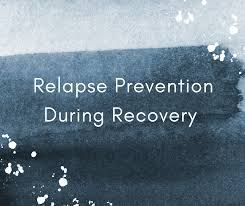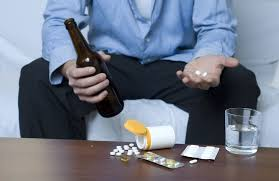How To Prevent Addiction Relapse
Immediate
Placement Available at our Top-Rated Treatment Centers.
Please call us at (855) 410-4488. We work
with most major insurance providers and offer flexible payment
options!
Atrium Addiction Care offers a variety of treatment choices and programs for individuals struggling with drug or alcohol addiction. Our inpatient treatment programs are designed for those who have more severe substance use problems and require 24-hour care. We admit both voluntary and involuntary patients.

Addiction is a chronic disease that requires long-term management and support. Even after completing a treatment program, individuals with addiction are at risk of relapse. Relapse refers to the return to substance use after a period of abstinence or reduced substance use.
Preventing relapse is crucial for maintaining recovery from addiction. Relapse prevention involves identifying triggers, developing coping strategies, building supportive relationships, and practicing self-care. It also involves learning how to recognize early warning signs of relapse and taking action before it's too late.
In this article, we will discuss effective strategies for preventing addiction relapse, promoting recovery, and maintaining long-term recovery. We will draw on evidence-based practices and insights from Atrium Addiction Care experts who specialize in helping people overcome addiction challenges.
Developing Healthy Coping Strategies
Relapse prevention is crucial in addiction recovery. One way to prevent relapse is by developing healthy coping skills. Coping skills are techniques that individuals can use to manage stressors and triggers without turning to substance abuse. These skills can be learned through an addiction treatment program or a wellness program.
Some common coping strategies include exercise, meditation, deep breathing exercises, journaling, and seeking support from loved ones or a therapist. Exercise has been shown to reduce anxiety and depression while improving mood and self-esteem.
Meditation and deep breathing exercises help individuals relax and refocus their thoughts away from cravings. Journaling provides an outlet for emotions and allows individuals to identify patterns of behavior that may lead to relapse.
In addition to these techniques, it's important for individuals in addiction recovery to develop personalized coping strategies that work best for them. This involves identifying triggers, recognizing warning signs of relapse, and creating a plan of action when faced with difficult situations. By incorporating healthy coping skills into daily life, individuals can increase their chances of long-term sobriety.
Identifying Triggers And Avoiding High-Risk Situations
Developing healthy coping strategies is an essential component of preventing addiction relapse. It involves learning and practicing new ways to manage stress, anxiety, and other triggers that may lead to substance use. Coping skills can include exercise, mindfulness meditation,, deep breathing techniques, or engaging in enjoyable activities such as art or music therapy.
Another crucial step in relapse prevention technique is identifying triggers and avoiding high-risk situations. Common triggers for individuals with substance use disorders can vary from person to person; some common ones are negative emotions like sadness or anger, social pressure from friends who still use substances, and exposure to environments where drugs or alcohol are being used. Reducing the risk of potential triggers often includes making lifestyle changes such as finding new hobbies or friends who do not engage in any drug use or alcohol use disorders.
Individuals with dual diagnosis - a co-occurring mental health disorder alongside substance abuse - have unique needs when it comes to specific relapse prevention techniques. In addition to traditional treatment methods like psychotherapy and medication management, addressing both conditions simultaneously through integrated treatment programs has been shown to be effective for long-term recovery success.
Recovery support groups: Joining a support group helps reduce feelings of isolation by connecting individuals with others facing similar struggles.
Family counseling: Addiction affects not only the individual but also their loved ones. Engaging in family therapy sessions can help repair relationships damaged by addiction and provide additional support during recovery.
Mindfulness practices: Techniques like mindfulness-based stress reduction (MBSR) have been found helpful in reducing cravings and improving emotional regulation among those with substance use disorders.
Overall, preventing addiction relapse requires ongoing effort and commitment to maintaining sobriety. By developing healthy coping mechanisms, avoiding high-risk situations and taking advantage of specific relapse prevention techniques tailored to individual needs, individuals can achieve successful long-term recovery.
Having A Support System

Support from others can be a powerful tool in preventing addiction relapse. When it comes to overcoming substance abuse, having a support system is crucial for maintaining sobriety and promoting overall wellbeing.
Individuals who struggle with addiction face many challenges during their recovery journey, which makes the presence of supportive friends and family members all the more important. Relapse prevention techniques are essential components of any successful treatment program.
Having a strong support system that understands these strategies can make all the difference in an individual's long-term success. Some dual diagnosis programs even offer family therapy options as part of their relapse prevention strategies.
This approach not only helps individuals maintain sobriety but also strengthens familial relationships. By engaging in a family program or other similar initiatives, loved ones can receive education on how they can best support their recovering family member.
Such educational opportunities provide families with the tools needed to help prevent relapse from relapses and promote healthy coping mechanisms. Through this collaborative effort between patients, families, and healthcare professionals, individuals who have struggled with addiction are better equipped to remain sober over time without fear of relapsing into old, unhealthy habits.
Establishing A Routine - substance use disorder
Establishing a Routine: A Key Factor in Preventing Addiction Relapse Maintaining sobriety can be challenging for individuals who have undergone addiction treatment. One of the key factors in preventing relapse is establishing a routine that supports recovery goals and promotes good health habits.
Creating a structured daily schedule can help reduce stress, manage triggers, and limit opportunities to engage in risky behaviors. To develop an effective routine, it is essential to identify activities that promote wellness and resilience. These may include regular exercise, healthy eating habits, adequate sleep hygiene, mindfulness practices such as yoga or meditation, and social support from friends and family members.
Incorporating these activities into your day-to-day life can make it easier to stay on track with your recovery goals. In addition to personal care routines, participating in a formal health program tailored to your specific needs can provide important relapse prevention tools.
Programs like therapy sessions or group meetings offer ongoing support and guidance while helping you maintain accountability for your actions. By taking care of yourself both physically and emotionally and staying engaged in supportive programs, you will increase the likelihood of maintaining long-term sobriety without relapsing back into addictive behavior patterns(relapse prevention).
Participating In Therapy And Support Groups

- Cognitive Behavioral Therapy (CBT) is an evidence-based approach to treating addiction that focuses on changing problematic behaviors and thought patterns
- Group Therapy is a form of psychotherapy that involves a group of people with similar issues meeting regularly to discuss and work through their concerns.
- In Group Therapy, members share their experiences and learn to trust and support each other, gaining insight into their shared struggles.
- 12-Step Programs are based on a set of principles developed to help people recovering from addiction.
- 12-Step Programs emphasize the importance of relying on a higher power in order to achieve sobriety, as well as developing a strong support system.
- Participation in both individual and group therapies, as well as 12-Step Programs, has been proven to reduce the risk of relapse and promote long-term recovery.
Cognitive Behavioral Therapy
Cognitive Behavioral Therapy (CBT) is a widely used approach to addiction treatment that focuses on changing patterns of behavior and thought. CBT provides individuals with relapse prevention skills by teaching them how to identify high-risk situations, cope with cravings, and manage stress without resorting to substance use.
This type of therapy is effective in reducing the risk of relapse because it addresses both underlying emotional issues as well as behavioral triggers. Incorporating CBT into treatment plans can enhance the effectiveness of other forms of therapy and support groups.
By learning how their thoughts impact their behaviors, individuals undergoing CBT are better equipped to recognize negative self-talk or irrational beliefs that may lead them towards using drugs or alcohol again.
The goal of this therapy is not only sobriety, but also developing strategies for long-term success in recovery. The benefits of cognitive behavioral therapy extend beyond just addiction treatment; studies have shown its efficacy in treating various mental health conditions such as anxiety disorders, depression, and post-traumatic stress disorder.
In conclusion, incorporating cognitive behavioral therapy into a comprehensive treatment plan can be invaluable in preventing addiction relapse by providing individuals with practical tools and coping mechanisms necessary to maintain recovery and for achieving sustainable recovery.
Group Therapy
Moving forward, another form of therapy beyond self help group and peer support and group that individuals in recovery can participate in is group therapy. Group therapy involves a therapist leading a session with a small group of people who have similar substance and alcohol abuse or issues.
This type of therapy provides an opportunity for individuals to share their experiences, feelings, and struggles related to past use and addiction in a safe environment where they can receive feedback self help, and support from others who understand what they are going through.
Group therapy has been found to be effective as part of a relapse prevention program because it helps individuals develop healthy relationships and coping mechanisms. Through the sessions, participants learn how to communicate effectively, set boundaries, manage conflicts, and build trust.
They also gain insight into their own behaviors by listening to others' perspectives which allows them to address underlying emotional issues or triggers that may lead them towards using drugs or alcohol again.
In addition to providing practical benefits such as social and peer support, and accountability, group therapy also promotes personal growth and self-awareness. Participants often report feeling validated, accepted, and empowered after attending sessions.
Ultimately, being a part of a treatment facility's group therapy program can help individuals maintain sobriety long-term by equipping them with invaluable skills necessary for achieving sustainable recovery.
12-Step Programs
Another form of therapy and support group that individuals in the recovery process can participate in is 12-Step Programs. These programs were first introduced by Alcoholics Anonymous (AA) as a means to provide support, guidance, and encouragement for those struggling with alcohol addiction. Today, there are many different types of 12-step programs available for various substance use disorders and abuse problems.
The main focus of these programs is on providing social and emotional support through meetings where participants share their experiences, strength, and hope with each other. Members work through the program's steps together which include admitting powerlessness over their addiction, turning their lives over to a higher power, making amends for past wrongs, and helping others who suffer from similar issues.
While not everyone may find success with this type of approach, many people have found it helpful in achieving sustainable recovery.
The peer-led nature of 12-step programs allows individuals to connect with others who understand what they are going through while also providing accountability and motivation to stay sober.
Overall, participating in 12-step programs can be an effective way to supplement traditional therapy methods as part of a relapse prevention program within a treatment facility or aftercare plan. By actively engaging in these groups and working towards personal growth and change alongside peers who share similar struggles and goals, individuals can increase their chances of maintaining long-term sobriety.
Practicing Self-Care - relapse prevention
Eating healthy is an important part of self-care, as proper nutrition is necessary for physical and mental well-being. Regular physical exercise can reduce stress, improve mood, and enhance overall physical health.
Establishing healthy routines can help to ensure that self-care tasks are completed on a regular basis. Eating balanced meals several times a day can help to provide the necessary nutrients to support a healthy lifestyle.
Exercise programs that are tailored to individual needs can help to encourage an individual to stay on track with a fitness routine. Establishing a regular sleep schedule is also important in practicing self-care, as it helps to ensure that the body and mind are adequately rested.
Eating Healthy - addiction treatment
When it comes to how to prevent addiction relapse, preventing addiction relapse, practicing self-care is crucial. One aspect of this involves eating healthy and maintaining a balanced diet. For those in recovery from substance abuse, nutrition can play an important role in the recovery process.
Eating disorders are commonly seen co-occurring with substance abuse, so it's essential to address both issues simultaneously through a comprehensive relapse prevention program. A well-balanced diet can help individuals in recovery feel better physically and mentally. Proper nutrition supports overall health and helps combat physical symptoms associated with addiction withdrawal such as fatigue or insomnia.
Additionally, consuming nutrient-rich foods can also aid in managing cravings by providing the body with necessary vitamins and minerals that may be lacking due to drug use. It's not just about what someone eats but how they eat as well. Mindful eating practices can be especially helpful for avoiding relapses.
Taking time to savor each bite and being aware of hunger cues can prevent overeating or unhealthy food choices triggered by stress or emotional instability. By prioritizing a nutritious diet and mindful eating habits, individuals can improve their chances of long-term success in addiction recovery.
Exercising Regularly - drug or alcohol use
Another critical aspect of self-care that can aid in preventing addiction relapse rates is regular exercise. Exercise has been shown to improve mood, reduce stress and anxiety levels, and increase overall well-being.
Incorporating physical activity into a relapse prevention plan can help individuals manage common triggers such as boredom or restlessness.
Furthermore, engaging in experiential therapy through physical activity like hiking or rock climbing may also be beneficial. Experiential therapy involves hands-on activities that allow individuals to express emotions and work through challenges in a nontraditional setting.
It's important to note that the level of care needed for an individual in recovery will vary based on their specific needs and circumstances. However, incorporating regular exercise into any level of care can have positive effects on both physical and mental health, ultimately supporting long-term success in addiction recovery.
Establishing Healthy Routines
Preventing addiction relapse requires a multifaceted approach, and one important aspect is establishing healthy routines.
While in the early stage of recovery from addiction, individuals may struggle to find structure and purpose in their daily lives. By implementing regular routines such as waking at a consistent time and having designated meal times, individuals can regain control over their lives while reducing stress and anxiety levels.
In addition to providing structure, establishing healthy routines can also help manage common triggers that lead to relapse. For example, boredom or restlessness may trigger the desire to use drugs or alcohol. However, with established routines for activities like exercise or hobbies, individuals have something positive to focus on when feelings of boredom arise.
Furthermore, incorporating self-care practices into daily routines can improve overall well-being and support long-term success in recovery from addiction. This includes practicing mindfulness techniques such as meditation or yoga and engaging in relaxing activities like reading or taking a bath.
Developing healthy habits takes time and effort but has numerous benefits for both physical and mental health in the journey towards sustained sobriety.
Conclusion
Preventing addiction relapse is a crucial aspect of earlier stages of addiction recovery. Individuals must develop healthy coping strategies and identify triggers to avoid high-risk situations external triggers that may lead to relapse.
Having the support of loved ones, participating in therapy and support groups, establishing a routine, and practicing self-care are essential steps towards maintaining sobriety. By developing healthy coping mechanisms such as meditation or exercise, individuals can manage stress without turning to substances. Identifying triggers such as people or places associated with substance use allows for avoidance of those high-risk situations.
Creating a strong support system through friends, family members, or support groups provides encouragement during difficult times. Establishing a routine promotes structure and helps keep individuals accountable for their actions. Participating in therapy and attending support groups provide valuable tools for preventing relapse by providing guidance from professionals and allowing individuals to connect with others going through similar experiences.
Lastly, practicing self-care through activities like getting enough sleep or eating well helps maintain overall physical and emotional health. In conclusion, preventing addiction relapse requires a combination of proactive measures including developing healthy coping strategies, identifying triggers, having a support system, establishing routines, participating in therapy/support group sessions, and practicing self-care regularly. By taking these preventive measures consistently over time, one can achieve long-term success in their journey towards recovery from addiction.
